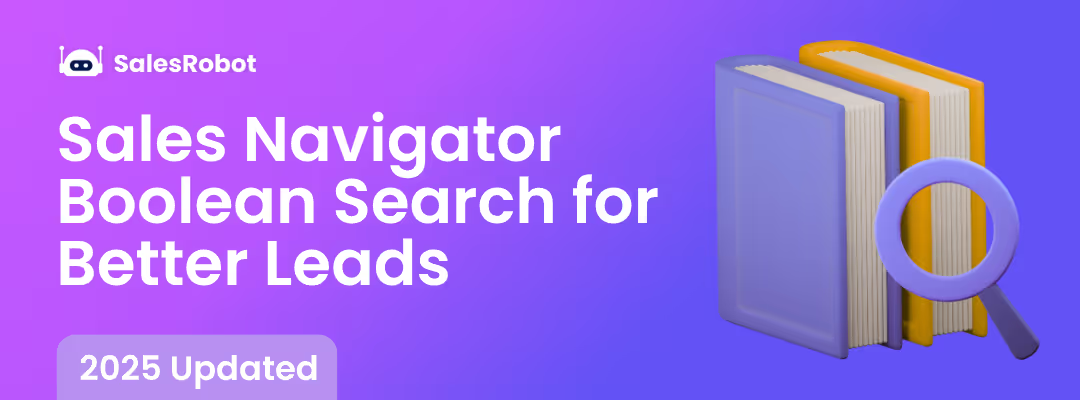TL;DR
Sales Navigator Boolean search uses 5 operators (AND, OR, NOT, quotes " ", parentheses ()) to find exact prospects on LinkedIn. Combine keywords like "(CEO OR Founder) AND startup NOT intern" to narrow your search results.
Use ChatGPT to create Boolean prompts if you're confused. Once you find your prospects, use SalesRobot to automate mass outreach with personalized messages, connection requests, and follow-ups.
It looks like you've been spending way too much time on the LinkedIn search to find the right leads for you.
Don't you wish you had an easy way to optimize your search and find the right leads?
There's no need to worry at all because I'm gonna tell you everything there is to know about the Sales Navigator Boolean Search.
This is a pretty powerful search method that, once you understand and master it (which you will once you're done reading this blog 😉), you can easily narrow down your searches and find the exact audience you're looking for.
So yeah, in this blog, you'll know more about:
- What exactly is the Sales Navigator Boolean Search?
- A walkthrough on how to use the Sales Navigator Boolean Search
- A way to optimize your normal LinkedIn Search
- Exporting your search results
Sales Navigator Boolean Search In a Nutshell
Pressed for time? I get it, not everyone has the time for a huge article. That's why I've made a quick TL;DR, just for you
💥Sales Navigator Boolean search is a precise way to find people on LinkedIn through operators like AND, OR, NOT, quotes (","), and parentheses ().
- AND - To combine multiple keywords (like Marketing AND Manager)
- OR - To include results from all the keywords (like CEO OR founder)
- NOT - To exclude the second keyword from the first (like Engineer NOT Intern)
- Parentheses () - To group your operators. (like (CEO OR Founder) AND Investor)
- Quotes " " - To search for very specific keywords (like "B2B company manager")
💥This method is a great way to sort and filter through the SalesNav search, but if you're finding the Boolean search confusing, you can always ask ChatGPT to make prompts for you.
💥On obtaining your ideal prospect list, your next step is to reach out to them. That's where SalesRobot comes in handy because it can assist with mass outreach.
💥SalesRobot can send connection requests and personalized messages, and it's fully automated by AI. Additionally, SalesRobot now includes advanced CRM integrations that can control campaigns and perform actions like pausing sequences, tagging conversations, and sending automated replies directly from your CRM.
Okay, now that that's out of the way, let's not waste any more time, and let's just dive right into it!
Let's not waste any more time, and let's just dive right into it!
What Exactly is The Sales Navigator Boolean Search?
LinkedIn Boolean Search is a query technique that combines words and phrases with Boolean operators to limit, narrow, or expand your keyword searches to find your prospects with better accuracy.
LinkedIn Sales Navigator has five Boolean operators, which are as follows:
- AND
- OR
- NOT
- " " - Quotes
- ( ) - Parenthesis
You can either use them individually or mix them up to get better search results.
Let me give you a quick brief on each one of them.
AND Operator
The "AND" operator just includes everything you search for.
So, if you search for "CEOs AND Founders," your search results will contain both of them.

OR Operator
The "OR" operator works best when you want to broaden your search. Your search results will contain any of the keywords you've used or all of them together.

NOT Operator
The "NOT" operator works best when you're looking for something very specific.
What this basically does is it'll eliminate the second keyword completely and give you results for the first keyword only.

For example, if you want to search for people in marketing but don't want any interns, your search will look like this: "marketing NOT intern"
" " Quotes
The quote " can be used if you want to search for a very specific title or keyword. For example, if you're searching for companies in the B2B or SaaS space, you can use "B2B" or "SaaS" in your search to get the exact results.
( ) - Parenthesis
You can use the parentheses "( )" to combine the rest of the Boolean operators.
Ex: "(CEO OR founder) AND startup"
This'll search for people who have either "CEO" OR "founder" in their profile AND also have "startup" mentioned somewhere in their profile. It doesn't necessarily mean they own a startup - it just means both conditions are met in their LinkedIn profile data.
This allows you to create your own queries, add a list of keywords, and even exclude what you don't want to appear in your search.
This way, you can efficiently narrow down your search results, allowing you to find the people or companies you're looking for. You can use Boolean operators in the keyword field, and they also work in the company and title fields within Sales Navigator.
How To Make The Most of These Operators?
It's not that hard, really. Once you understand what each operator means and what they do, it's just smooth sailing ahead.
You can mix each of them in different ways, each giving you a very catered search result.
Let me just show you how I did it; that way, it's a lot easier.
Searching for Multiple Keywords
This is where the "AND" operator comes in. So, let's say I'm looking for CEOs and Founders of various companies.
I'll simply type in "CEO AND FOUNDER" in the search bar.
And there you go, you get a bunch of results containing people who are CEOs and founders of different companies.
Broadening Your Search
You can use the "OR" operator if you want to broaden your search and find more people or companies.
So let's say you search for "Marketing OR Sales"; this'll give you a list of people who are either in marketing or sales or both.

Excluding Keywords from Your Search
The "NOT" operator comes in handy when you want to exclude certain keywords from your search.
Let's say you're looking for engineers. There are multiple types of engineers out there. If there's a type of engineer you're not looking for, just use the "NOT" operator.
Let me show you real quick!

There you have it. You've got yourself a list of people who are different types of engineers, completely excluding electrical engineers.
Finding Something Very Specific
You know how there are multiple job titles or company names with so many abbreviations? Quotation marks (" ") are your best bet in finding what you're looking for.
If you search for a Chief Executive Officer on LinkedIn, you'll get a massive list of people who are CEOs.
However, the catch is that the list will include many other people who are Executive officers or simply officers.

Now, let's search for the same thing using Quotation marks.

Combining All the Boolean Operators
This is where your search game truly shines.
Remember how I told you about making your own concoction? Well, using parentheses ( ), you can combine all of the above boolean operators to get what you're looking for.
Let me give you a small example.
Now, I'm looking for companies that are in the B2B or SaaS space. To get a good search result, I'm gonna type "B2B OR SaaS".
Once I do find the companies, let's say I want a certain type of person. CEOs and Founders, for example.
To get what I'm looking for, I'm gonna search "(B2B OR SaaS) AND ("CEO" OR "Founder")". Getting the gist of it?

Just take a look at how much the search results were narrowed down.
Boolean search operators work across multiple fields in Sales Navigator, including the keywords field, company field, and title field, giving you maximum flexibility in your searches.
Using ChatGPT for your prompts

Yeah, I'm not kidding here. ChatGPT can actually give you the best prompts for your Boolean search.
I've created a thread with the help of ChatGPT, of course. Check it out and feel free to use it.
https://chatgpt.com/share/ac2ca1e2-3b48-440e-90f7-4512cb14a44e
The reason I'm telling you not to hesitate using ChatGPT is because it's quite understanding.
You can ask the most basic questions, like "I'm looking for founders and CEOs of new startups, create a boolean search for me."
I just typed this in ChatGPT, and this is what it gave me:
"(Founder OR CEO OR "Chief Executive Officer") AND (Startup OR "New Company" OR "Early Stage" OR "Founder at")."

If this isn't to your satisfaction, you can keep adding more prompts, including or excluding keywords of your choice, and ChatGPT will take care of the rest.

How to Mass Message People on LinkedIn?
Mastering Sales Navigator's Boolean search isn't that hard, trust me. You just need to get the hang of it. It's easier with a lot of trial and error.
But then, what's the next step?
You're gonna wanna reach out to them effectively. Mass outreach is a perfect way to save time while delivering personalized messages to a larger audience. The whole point of the Boolean search was to narrow down your search for a more targeted approach.
You can go ahead and start texting them, but then again, you'll be dealing with more than 15k people. Plus, these messages gotta be personalized, so copy-pasting the same message won't work (don't do it - you could get suspended).
There are three main methods for mass outreach:
- LinkedIn InMails can be sent as direct messages without needing to connect with the recipient. InMails are limited, so use them strategically.
- LinkedIn messages are free to use, but you can only send them to people you're connected with.
- Emails, however, offer more flexibility as they aren't restricted by connection status or have platform limitations.
It's better to automate these repetitive tasks (this includes automated scheduled follow-ups, too).
Let me just show you how easy it is with SalesRobot, a cloud-based LinkedIn automation tool designed for multichannel outreach across LinkedIn and email.
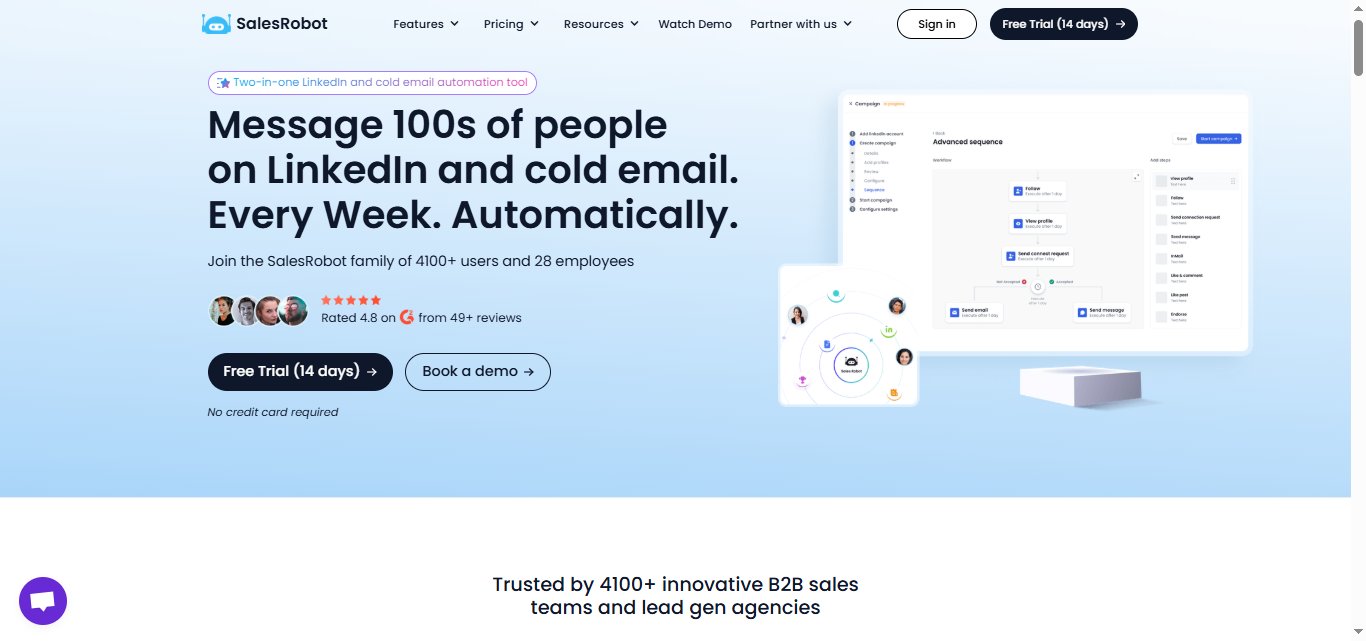
Mass Outreach
Step 1: Create your message campaign with SalesRobot, and add your Sales Navigator search URL.
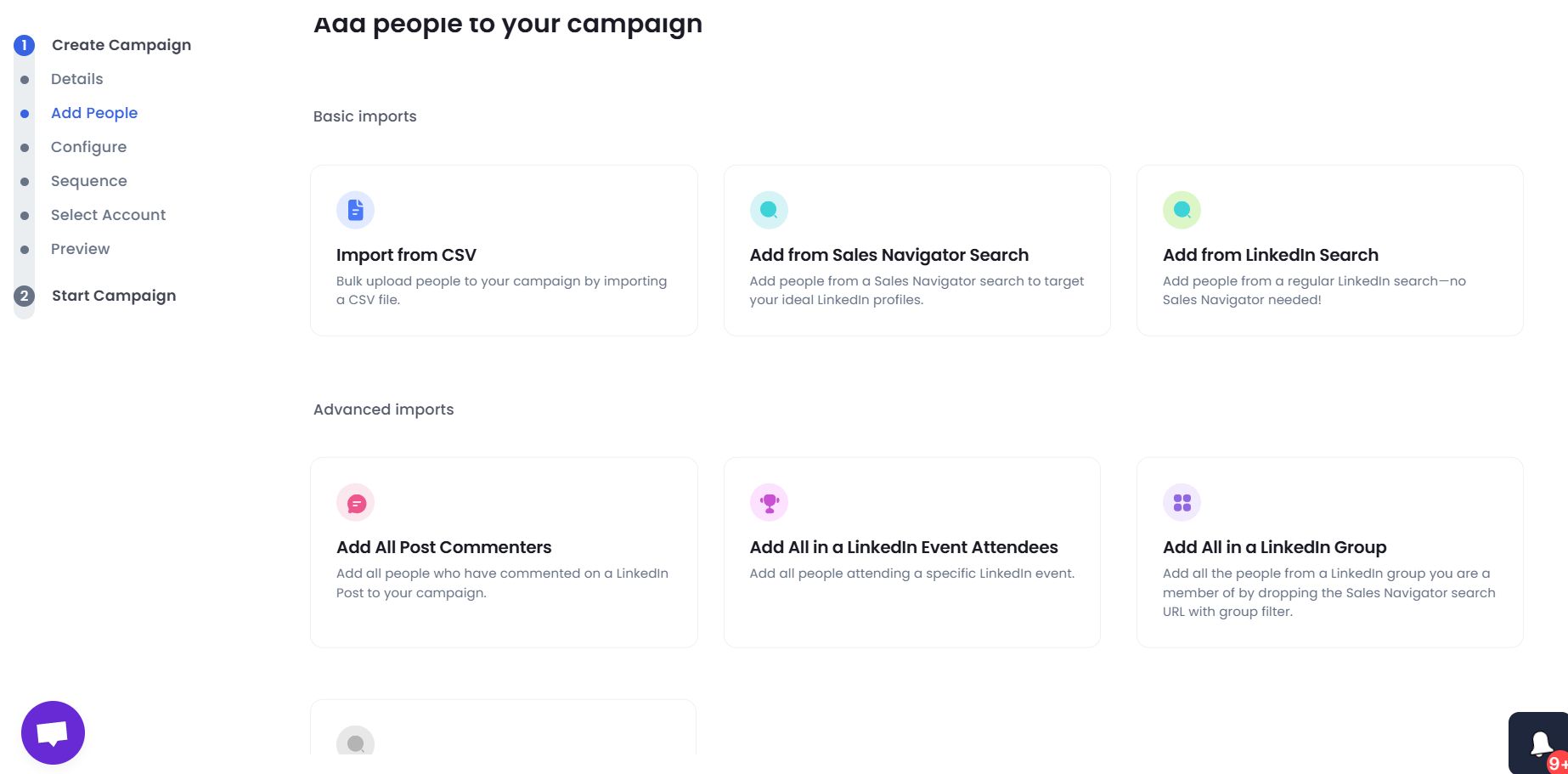
Step 2: Click "Enrich Email"; this way, you'll always have the latest emails from your prospects. If you want to make the most of InMails, enable the "Premium Only" option. SalesRobot also includes CRM integration capabilities that let you control automation directly from platforms like HubSpot, Salesforce, and Zoho.

Step 3: You can now begin crafting your message. SalesRobot also has its own set of pre-made templates that you can use anytime.

Step 4: Now, just create sequences like sending connection requests, messages, and even follow-ups (all of these are automated, by the way).
You have the flexibility to choose the time interval between each message and follow-up.

You can choose steps like viewing the profile, liking and commenting on posts, and even endorsing them.

Step 5: Now, let's say you want to add a little more personalization to this automation. There's a way for that, too!
While creating your campaign sequence, select the AI Variables feature.
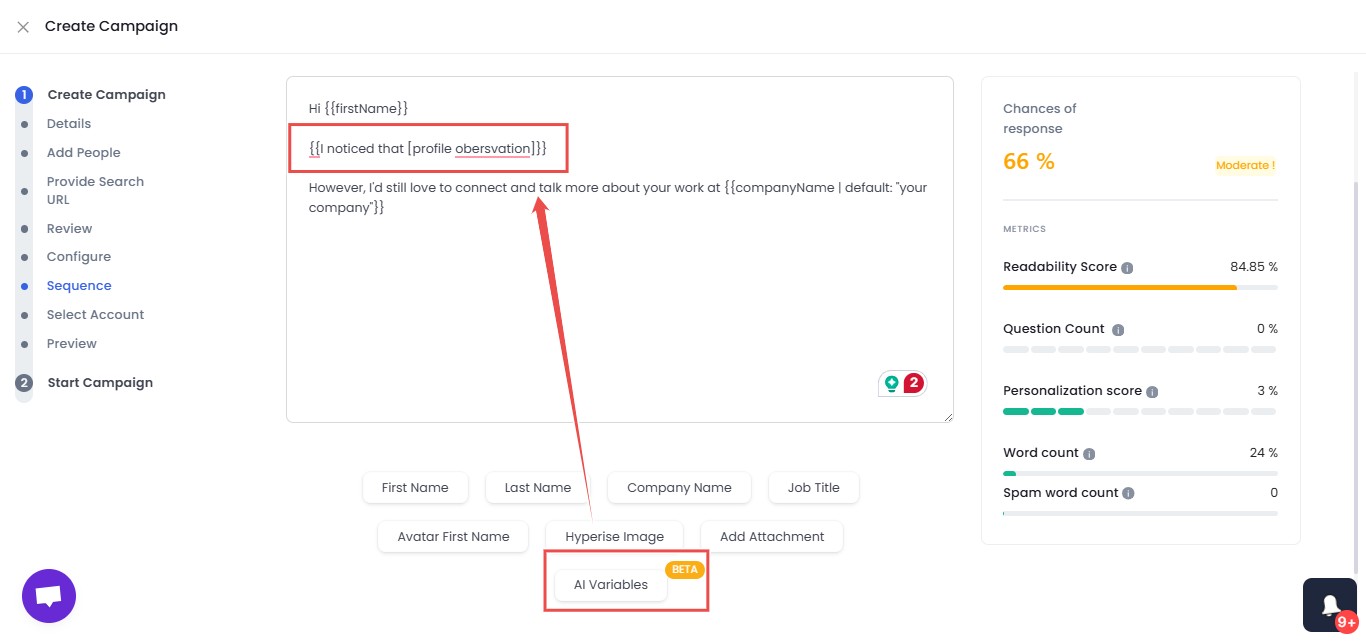
Then pick your preferred prompt out of the many tested templates available.

Then sit back and leave the automation to the AI. It'll look into your prospect's profile and craft personalized messages that hit hard.
And our AI isn't a quitter, so it's gonna keep chatting until it books a meeting.
Which means, if you don't have time to personally engage with each prospect, SalesRobot's AI Inbox Manager will mimic your communication style and converse with prospects on your behalf until they get on a call with you.
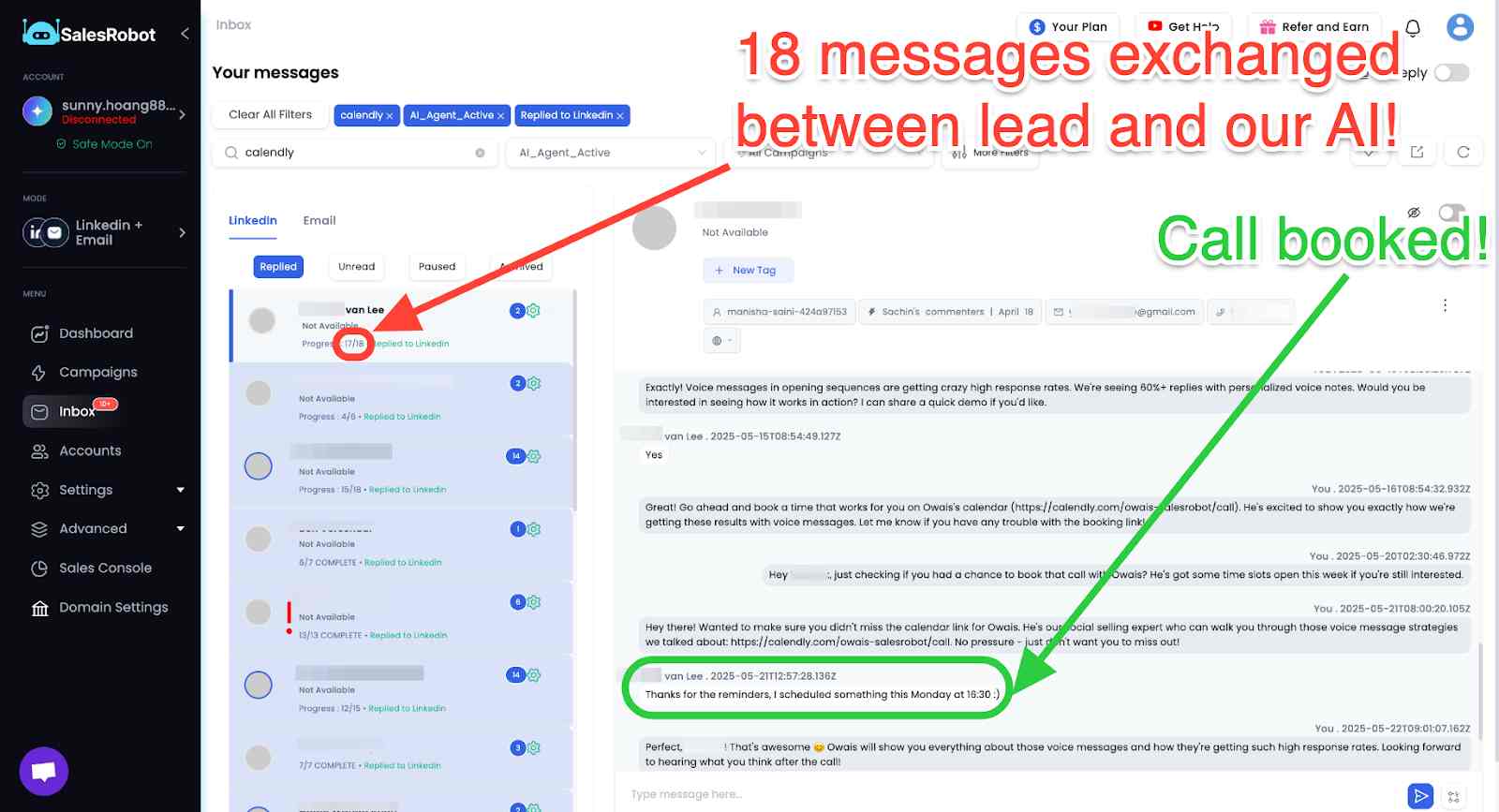
Exporting Leads
Now that you've reached out to all the people in your search results, it's time to export them.
Why, you ask?
Well, all your data will be organized in one place, making it easier for your team to access it, and you can also easily integrate these into the CRM systems you use frequently.
Once you save your campaign and let it run, click on the three dots at the end of your campaign and select target profiles.

Now, just click "Export as csv," and you're good to go. SalesRobot will get the latest info on your prospects and fully automate sending connection requests and follow-up messages too.
If you're worried about safety, there's a dedicated safe mode feature to keep your account protected.

With SalesRobot's 14-day free trial, you can check out all these features. Just sign up, and you're good to go. No need for any credit card details or phone numbers.
The Takeaway
There are 5 main Sales Navigator Boolean operators, each of them having its own purpose.
The AND operator includes everything you search with it.
The OR operator gives you either the first or the second keyword or both.
The NOT operator gives you the first keyword, completely excluding the second keyword.
" " Quotes can be used to make your search results a lot more specific.
() Parentheses can be used to mix up all the other Boolean operators to make your search more efficient.
Remember: Boolean operators work in the keyword field, title field, and company field in Sales Navigator. You must type AND, OR, and NOT operators in uppercase letters for them to work properly.
You can make use of ChatGPT to make a query to meet your requirements.
Go ahead and use the ChatGPT thread I created; modify it as you wish 🙂.
https://chatgpt.com/share/ac2ca1e2-3b48-440e-90f7-4512cb14a44e
Once you do get your search results, remember that it's always good practice to export them into an Excel sheet. You can easily get started with SalesRobot.
Additionally, SalesRobot now offers advanced CRM integrations with HubSpot, Salesforce, and Zoho that let you pause campaigns, tag conversations, and send automated replies directly from your CRM. You can also set up automated workflows through Integry to trigger specific actions when contacts accept connections or respond to messages.
Peace out!
Heading 1
Heading 2
Heading 3
Heading 4
Heading 5
Heading 6
Lorem ipsum dolor sit amet, consectetur adipiscing elit, sed do eiusmod tempor incididunt ut labore et dolore magna aliqua. Ut enim ad minim veniam, quis nostrud exercitation ullamco laboris nisi ut aliquip ex ea commodo consequat. Duis aute irure dolor in reprehenderit in voluptate velit esse cillum dolore eu fugiat nulla pariatur.
Block quote
Ordered list
- Item 1
- Item 2
- Item 3
Unordered list
- Item A
- Item B
- Item C
Bold text
Emphasis
Superscript
Subscript
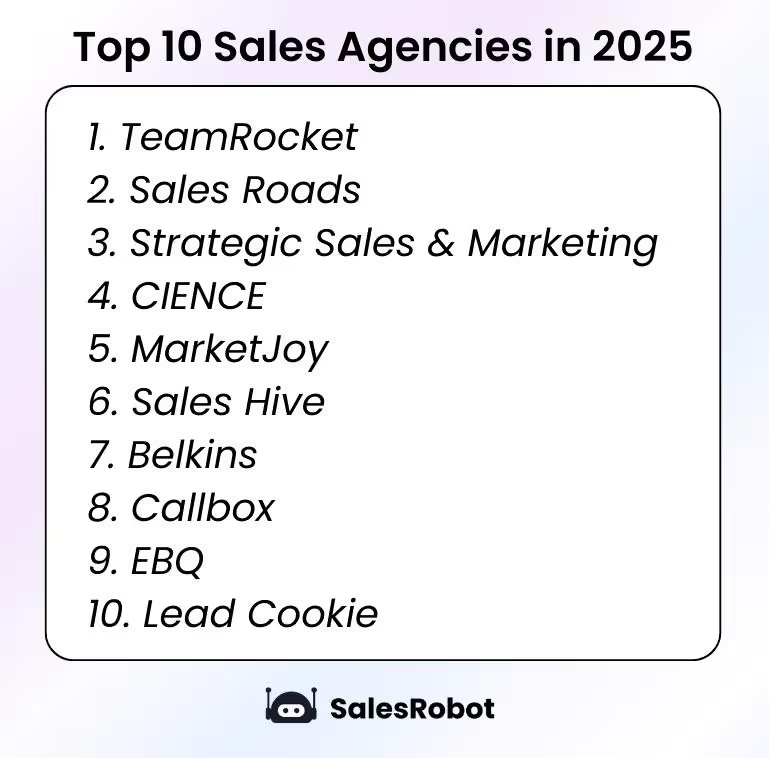

Wow your leads by cloning yourself and sending personalized videos and voice notes to each lead on LinkedIn.

If you don't reply to leads within 5 mins, your chances of converting them fall by 50%. Our AI replies on your behalf instantly! (and yes, you can train it)

Don't shoot in the dark. Get detailed analytics on what's working
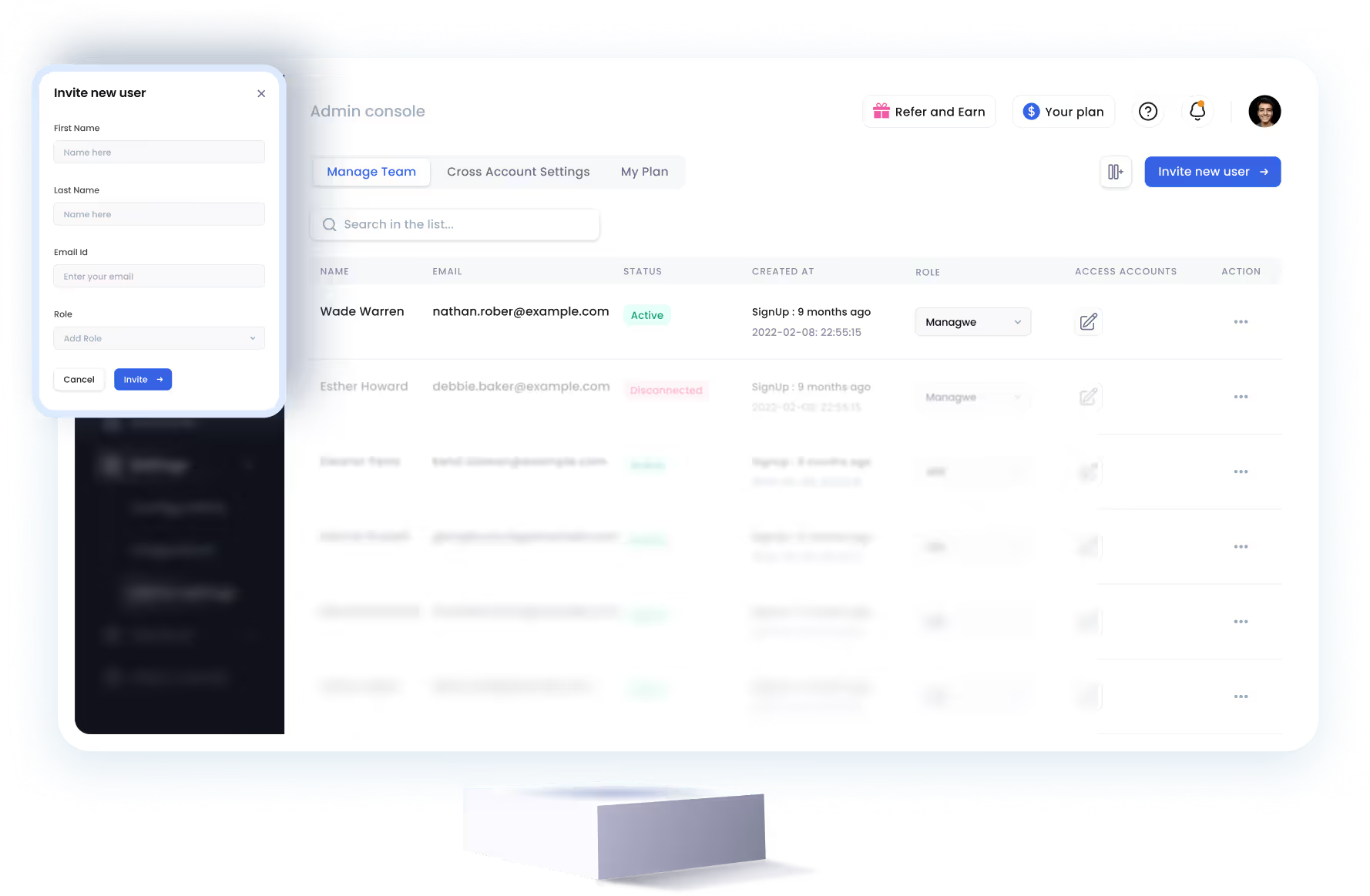
SalesRobot allows you to invite other team members, so that they can add their LinkedIn Account, run outreach campaigns and get amazing results just like you.
Trusted by 4100+ innovative B2B sales teams and lead gen agencies

.avif)

.avif)




.avif)


















